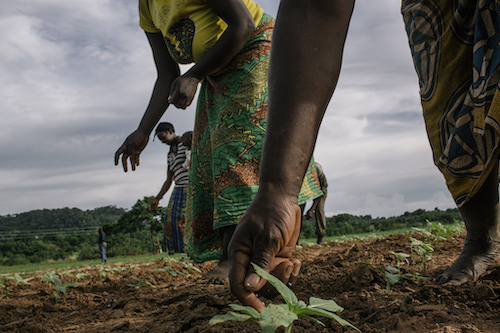By ROGERS KALERO
DANGOTE Cement Industries has embarked on an ambitious programme of supporting food security through buying fertiliser for agricultural cooperatives who will in turn produce maize whose waste would be used as fuel for the company’s production of cement.
[ihc-hide-content ihc_mb_type=”show” ihc_mb_who=”4,5,6″ ihc_mb_template=”2″ ]
The Company will be using corn cob and other waste in the production of cement as it moves away from using coal as a main fuel to alternative fuel such as waste material in an initiative called Waste to Energy which was aimed at reducing carbon in the environment.
Dangote Cement Industries Head of Environment and Social Performance Victor Mpundu said his company was creating a strong relationship with the community by contributing to food security and also embarking on an initiative to reduce carbon in the environment by replacing coal with corn cob and other waste as alternative fuel.
Mr Mpundu was speaking at the weekend when Dangote Cement Industries donated 24 bags of fertiliser to Kamitondo Women Cooperative in Chief Chiwala’s area.
“As the agricultural season gets closer, Dangote Cement Industries decided to donate these 24 bags of fertiliser to you, our farmers. As you know, our relationship has been getting stronger because we support each other.”
“When you produce maize from this fertiliser, Dangote will come and buy the corn cobs from you. We use the corn cobs from our operation because in our effort to reduce carbon in the air, we are replacing coal with corn cob and other waste as alternative fuel,” Mr Mpundu said.
Mr Mpundu said the company was moving away from using coal as a main fuel to alternative fuel such as waste material in an initiative called Waste to Energy.
“For a better understanding of our strategy, we want to highlight that we are the market leaders in green cement in Zambia in that, currently, 18% of our energy needs for cement production come from alternative fuels, which are waste materials ranging from plastic, paper and agro-waste.”
“Currently, we use under ten tonnes per month of plastic waste. As part of our de-carbonisation strategy, by 2030, 40% our energy needs for cement production should come from waste.” he said.
And Alimasi Beatrice said the cooperative was grateful for the support it was receiving from the company, but emphasised that the cooperative would like to have a meeting with Company proprietor Aliko Dangote.
“We are grateful that Dangote has been supporting us in various ways. but you should tell the owner of the Company to meet us one day, we would like to talk to him,” Ms Alimasi said.
[/ihc-hide-content]










